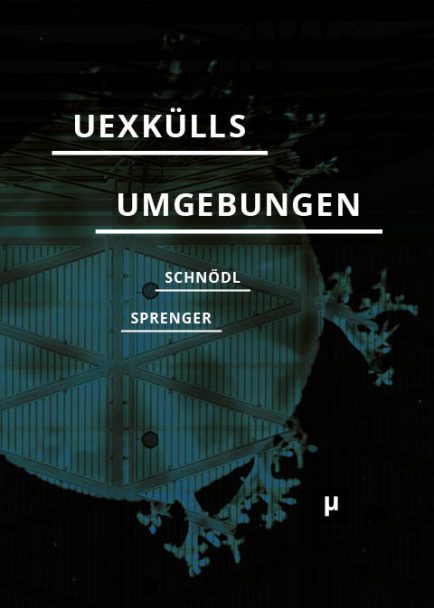Dedicated to open access
The Future Ecologies series investigates emerging ecologies in uncertain worlds—ecologies that are open to the interests of other-than-humans and that care for plural modes of existence. It advocates for interdisciplinary approaches towards the numerous aspects of ecology.
Go to seriesFuture Ecologies
The future of life on Earth has generated ongoing debates in academia, through which the concept of ecology has gained status by being able to connect disciplines across the natural sciences, humanities, arts, design and architecture. Criticism of the effects of climate change, which exacerbate existing inequalities in our global population, has spread from academia to the political and public spheres. At a time when the future of life on this planet is more uncertain than ever, the urgency of exploring other ways of thinking, acting and dwelling together is evident. This book series investigates emerging ecologies in uncertain worlds—ecologies that are open to the interests of other-than-humans and that care for plural modes of existence. By providing a platform for these topics and debates, we hope to contribute to a nature contract with the Earth as the shared common ground of water and minerals, air and birds, earth and woods, living and non-living, active and passive matter.
Future Ecologies is about a “time-space-mattering” that calls into question common knowledges about the relationship between space, place, territory, and the linearity of time in light of the circulation of matter, energies, and affect. It also questions the meaning of past ecologies and unsustainable futures for emergent ecologies, while problematizing the ambivalent histories of environmental knowledge, especially in the interplay of modernity and coloniality. Reading research in the Future Ecologies series allows you to take the many facets of past ecological thinking into account, to reveal its differentiated and often contradictory political implications and effects—and to criticize its, sometimes, naïve promises. Studying Future Ecologies means not taking for granted what ecology means.
The series promotes a relational thinking that is aware of the environmental, economic, social, and individual complexities of such a pluriverse driven by equally complex technologies and infrastructures. As Donna J. Haraway said, in a shared world “nothing is connected to everything, but everything is connected to something”. This connection generates and discloses different scales of responsibility. We dedicate this book series to all earthly critters who want to invent and try out new forms of life and styles of cohabitation, who ask which risks we want to and are able to take, and which futures we dream of. We invite contributions that address the geopolitical inequalities of climate change and capitalist extractivism, that deal with politics of (un)sustainability and (de)futuring, technologies of recycling and environing, non-anthropocentric epistemologies and practices of world-making.
The Future Ecologies series advocates for interdisciplinary approaches towards the numerous aspects of ecology. We invite junior and senior scholars from various disciplines in media, cultural and literary studies, anthropology, design, architecture, and the arts to build collaborations between different voices, practices and knowledges—that is: heterogeneous communities of practice. By endorsing open access publishing, the series also aims to partake in the current transformation of the ecologies and economies of knowledge production.
The Future Ecologies series is edited by Petra Löffler,
Claudia Mareis, and Florian Sprenger.
Books belonging to this series:

Zonen
Für eine kritische Ökologie in den Geisteswissenschaften
Jörg Dünne, Eva Horn, Birgit Schneider

Fragile Evidenz
Videodokumente illegaler Zurückweisungen an Europas Grenzen
Anna Polze

Kritik des Neo-Extraktivismus in der Gegenwartskunst
Hauke Ohls, Birgit Mersmann

Elementare Ekstasen
Sondierungen der Technosphäre

Material Trajectories
Designing With Care?
Léa Perraudin, Clemens Winkler, Claudia Mareis, Matthias Held

Records of Disaster
Media Infrastructures and Climate Change
Jakob Claus, Petra Löffler

Uexküll’s Surroundings
Umwelt Theory and Right-Wing Thought
Gottfried Schnödl, Florian Sprenger

Uexkülls Umgebungen
Umweltlehre und rechtes Denken
Gottfried Schnödl, Florian Sprenger

Aesthetic Experience of Metabolic Processes
Desiree Foerster

Earth and Beyond in Tumultuous Times
A Critical Atlas of the Anthropocene
Réka Patrícia Gál, Petra Löffler

